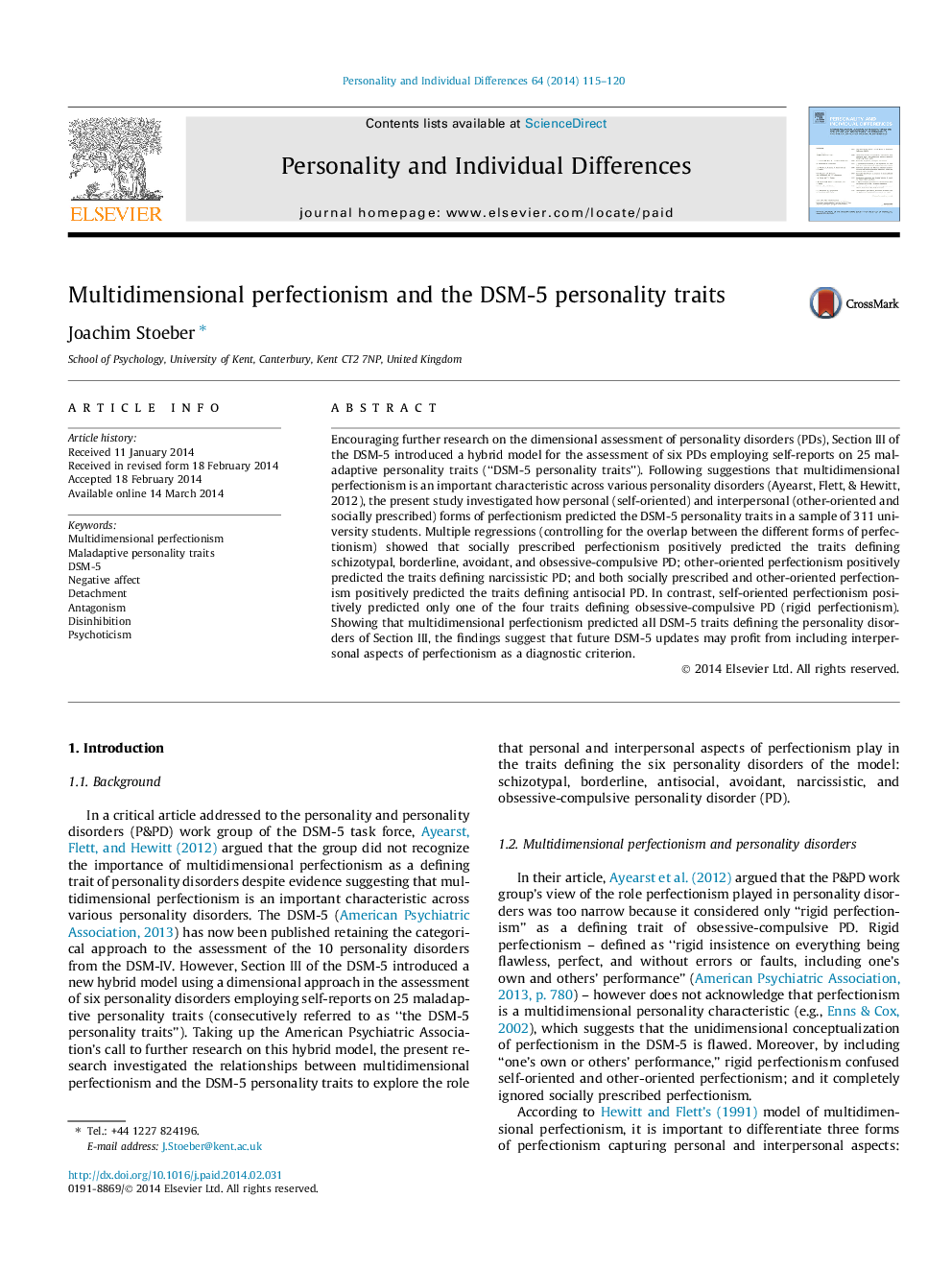| Article ID | Journal | Published Year | Pages | File Type |
|---|---|---|---|---|
| 7252373 | Personality and Individual Differences | 2014 | 6 Pages |
Abstract
Encouraging further research on the dimensional assessment of personality disorders (PDs), Section III of the DSM-5 introduced a hybrid model for the assessment of six PDs employing self-reports on 25 maladaptive personality traits (“DSM-5 personality traits”). Following suggestions that multidimensional perfectionism is an important characteristic across various personality disorders (Ayearst, Flett, & Hewitt, 2012), the present study investigated how personal (self-oriented) and interpersonal (other-oriented and socially prescribed) forms of perfectionism predicted the DSM-5 personality traits in a sample of 311 university students. Multiple regressions (controlling for the overlap between the different forms of perfectionism) showed that socially prescribed perfectionism positively predicted the traits defining schizotypal, borderline, avoidant, and obsessive-compulsive PD; other-oriented perfectionism positively predicted the traits defining narcissistic PD; and both socially prescribed and other-oriented perfectionism positively predicted the traits defining antisocial PD. In contrast, self-oriented perfectionism positively predicted only one of the four traits defining obsessive-compulsive PD (rigid perfectionism). Showing that multidimensional perfectionism predicted all DSM-5 traits defining the personality disorders of Section III, the findings suggest that future DSM-5 updates may profit from including interpersonal aspects of perfectionism as a diagnostic criterion.
Keywords
Related Topics
Life Sciences
Neuroscience
Behavioral Neuroscience
Authors
Joachim Stoeber,
